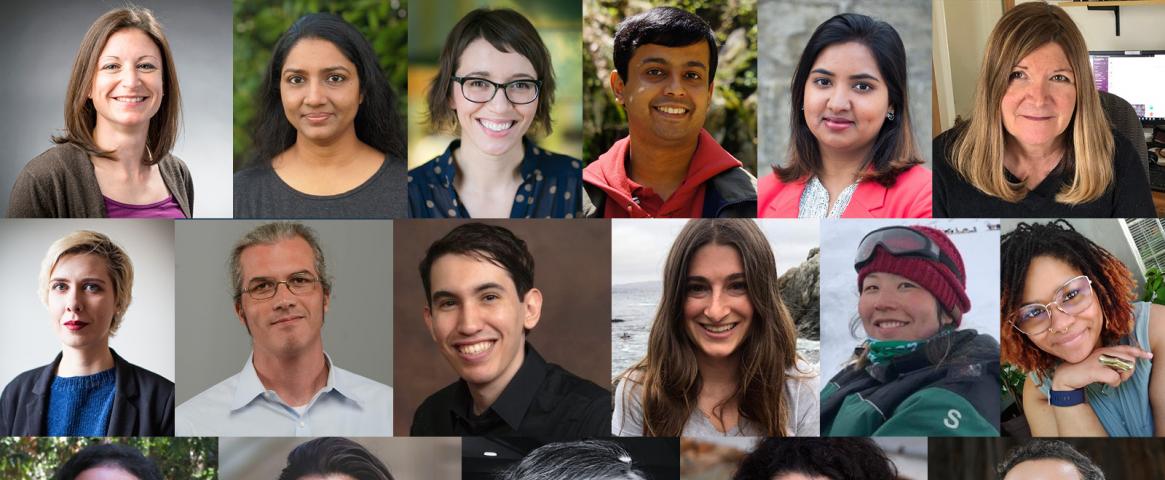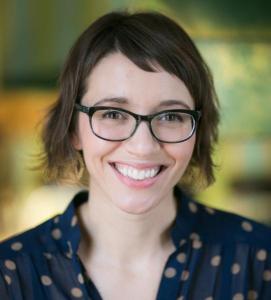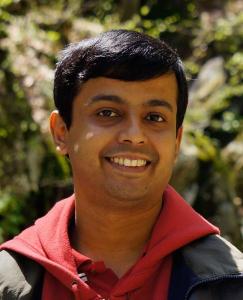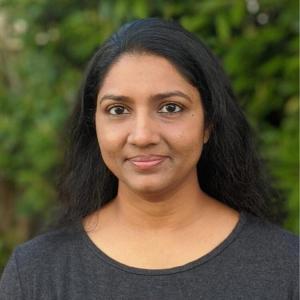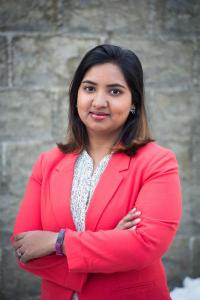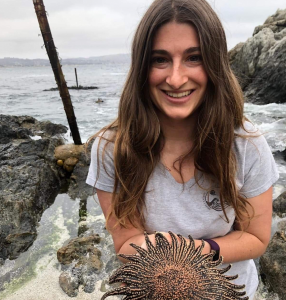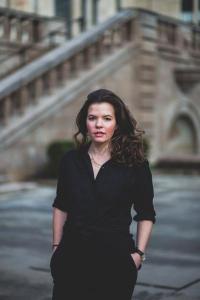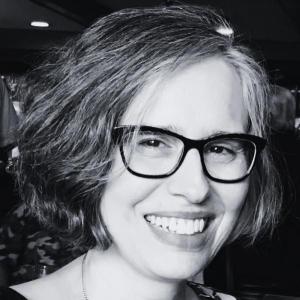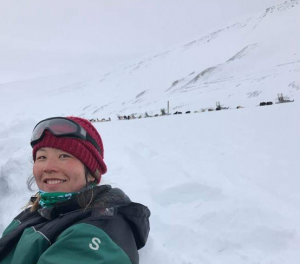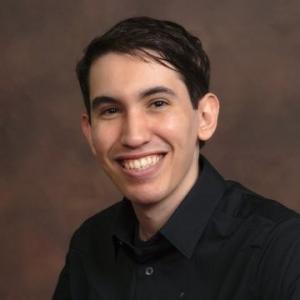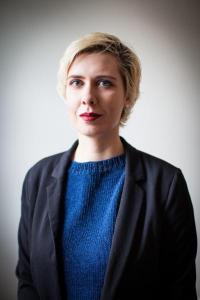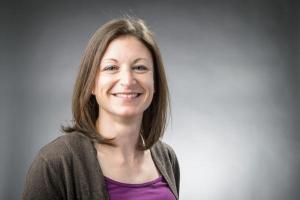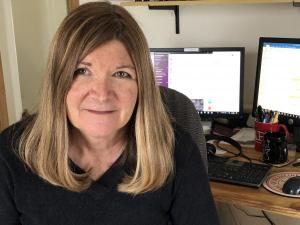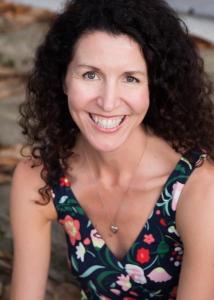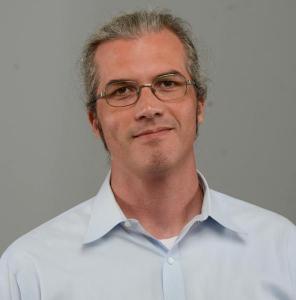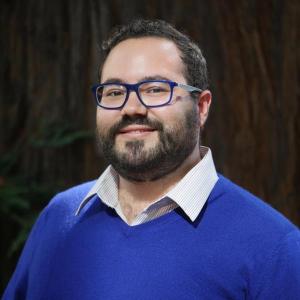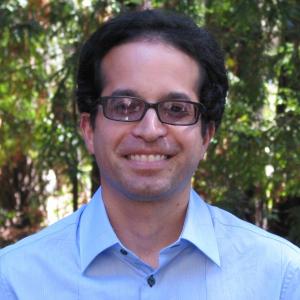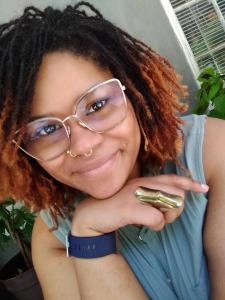Later this year, elections will be held to select our next volunteers for the NASW Board of Directors, serving the 2022-2024 term.
This election will confirm four officers and fill the board’s 11 at-large seats out of the field of 13 at-large candidates. The elected board will serve from October 2022 to October 2024. Statements for each candidate are posted below.
Voting is open to all current NASW members with Professional membership; voting is not open to those with Affiliate or Student membership. Voters will receive a personalized email in August 2022 with instructions and a link to the online voting proxy.
NASW thanks the 2022 Nominating Committee for their volunteer service in managing the candidate nomination process: Siri Carpenter (chair and past president); Jill Adams (president), Pakinam Amer, Jeff Grabmeier, Laura Helmuth (past president), Berly McCoy, Ashley Smart, Emily Sohn, and Arvind Suresh.
Meet your 2022-2024 NASW Board candidates:
Candidate for president
Cassandra WillyardFreelance
she/her
I am running for NASW president to help better serve and strengthen the science writing community. The past two years have been challenging for the organization and for many of our members. But they’ve also provided opportunities. We’ve found innovative ways to connect our members virtually. We’ve worked to help new science writers overcome barriers that might have prevented them from entering the profession. We’ve launched a mentoring program aimed at mid-career journalists. The board has also been thinking about how to draw new members, how to better engage with current members, and how to ensure we’re fostering a welcoming community for all. NASW is an organization that runs on the tireless effort of volunteers. And at a time when we all were stressed and stretched thin, those volunteers showed up, supported each other, and supported the organization. I am so honored to be a part of this community and to continue this important work.
Here’s a little about me: I’ve been a freelance science journalist for more than a decade. In that time, I’ve written for the New York Times, Nature, Popular Science, Scientific American, Discover, and many other publications. As a freelancer, I rely on NASW for advice and career development. The organization has given me colleagues, mentors, and some of my dearest friends. I’ve been an NASW member for nearly two decades, and served on the board for two terms. I’m chair of the Programs Committee and a member of the Grants Committee. I look forward to leading the organization.
Candidate for vice president
Sandeep RavindranFreelance
he/him
I’m running for my third term on the board, and would love to continue contributing to NASW. I have had the pleasure of serving as the NASW treasurer for the past two years and was the NASW secretary before that. As treasurer, I’ve worked with the Finance Committee to balance the organization’s budget while prioritizing events that benefit our membership, including fellowships, grants and conferences. To help members dealing with pandemic-related financial hardships, we offered hardship rates for membership renewals and a discounted introductory rate for new members. We also implemented standardized NASW membership rates for US, Canada and international members, and offered discounted dues for members based in low- and middle-income countries.
I’ve previously been active in various working groups aimed at increasing NASW member engagement, improving member benefits and supporting diversity and inclusion within NASW. As a new member of the Programs Committee, I look forward to helping plan the annual NASW conference, as well as organizing virtual events throughout the year. I previously helped organize the Power Pitch and Pitch Fest events at several NASW meetings, and I am keen to provide more such opportunities for NASW members to develop their professional skills and networks. I would also like to provide more mentorship and support to those new to our field, particularly with the aim of increasing diversity and giving voice to underrepresented perspectives. I strongly believe that a greater diversity of backgrounds and experiences can only make NASW stronger.
Before becoming a science writer, I completed a microbiology Ph.D. at Stanford and studied science communication at UC Santa Cruz. I worked as a science writer for the Proceedings of the National Academy of Sciences for a couple of years before becoming a freelancer. I’ve written for a variety of publications including the New York Times, TIME, Smithsonian, National Geographic News, Nature and WIRED. I would welcome the opportunity to continue to serve NASW.
Candidate for secretary
Jyoti MadhusoodananFreelance
she/her
The NASW community has been vital to my career since I ventured into science writing twelve years ago. I'm running for a second term on the board to extend the support I've received to others and to contribute to the board's ongoing efforts to make our community stronger and more inclusive.
I graduated from the UC Santa Cruz Science Communication program in 2014 and now live in Portland, Ore. I've worked as an independent journalist for the last eight years, covering the life sciences, health, ethics and equity for Scientific American, Nature, Undark, Chemical & Engineering News, and other outlets. I've co-chaired NASW’s Awards committee for the last five years and serve on the standing Ethics Committee. I've also volunteered with the Education Committee to mentor students and early-career writers and helped organize panel discussions for the annual ScienceWriters meeting and other NASW programming. Over the last few years, I helped reshape the mission of the NASW Awards to better reflect our commitment to equity, recognizing diversity and inclusion as central aspects of excellence in science writing. In 2020, my co-chair and I received the Diane McGurgan Service Award for these efforts. I’d be honored to continue my service to the NASW community as secretary.
Candidate for treasurer
Shraddha ChakradharDeputy editor, diversity, Science
she/her
I'm running for my second term on the NASW Board and am also running for treasurer. My big mission is to continue my work promoting diversity across science journalism. During my first term on the board, I helped support the organization's efforts through the pandemic, including moderating and co-organizing the opening plenary at the 2020 virtual science writers meeting on the topic of more diverse and equitable science writing. For the past year, I have been part of a working group on diversity that aims to help NASW (and our sister organization CASW) be more equitable in the programs it supports, and we have been in regular discussions about how to make this year's annual meeting — and other regular events and offerings — as welcoming and inclusive as possible. While the constraints of the pandemic have meant we've had to forgo in-person meetings, it has also freed us to think about ways to include people and perspectives that may have otherwise been excluded due to location-specific demands.
It's this lens of equity and inclusion that I will bring to the treasurer position as well since I can help NASW make informed decisions about how best to allocate funds and do the most good with our resources. One thing I'd like to do more of during another term as board member is to help increase the support we provide to international science writers, especially those based in countries without robust training or other support for building science writing skills. I have been a member of NASW for almost all of my decade-long career. I am currently deputy editor, diversity, at Science, and was most recently deputy editor of Nieman Journalism Lab. Previously, I was a reporter and newsletter writer for STAT (where I wrote STAT's flagship newsletter Morning Rounds).
Candidates for board members-at-large
Amanda HeidtAssociate editor, The Scientist
she/her
Only a few years ago, in 2019, I attended the NASW Internship Fair for the first time at AAAS in Seattle. Weeks later, we would all be confronted with a global pandemic that put an end to these kinds of in-person networking events for the foreseeable future, but at the time, it was an invaluable opportunity for me to connect with other science journalists. Based on my interview at AAAS, I was hired as an intern at The Scientist, where I work today as a reporter and editor.
I am applying for the board because I remember what it meant to be supported not just by professional organizations, but by mentors who were invested in my success, including many current NASW members. As a board member, I hope to pay that forward, drawing on my experiences heading The Scientist’s internship program and mentoring students through NASW to create new opportunities for early career scientists, particularly journalists of color and those from underrepresented minorities. Since arriving at The Scientist, I’ve joined my company’s DEI Committee, boosted our intern salary, and leveraged our Scientist to Watch column, which I assign and edit, as a way to highlight emerging talent and the many paths we all take through life.
Having written and edited for both print and digital, and having worked as a staff writer, PIO, and freelancer, I feel I have enough of a toe in each of these spaces to bring a diverse perspective. In my current role, I also cover the entirety of the life sciences, from anthropology to biochemistry and neuroscience. I revel in discussions about what the future of science journalism will look like, and believe that we all have the collective capacity to create an industry couched in integrity and respect and littered with opportunities (I’m a big fan of the abundance mindset). I look forward to serving the NASW community if elected.
Ana GorelovaMedia relations manager, University of Pittsburgh Medical Center
she/her
Many of us are familiar with a reaffirming experience of finding “your people'' after being on the sidelines and recognize the joy of discovering a community that you finally see yourself striving in. For me, that experience came at the NASW conference that I attended as a graduate student — unsatisfied with the prospect of a dragging career in academia but unsure about what other options are available to me, an international student with a temporary visa.
That NASW meeting changed everything. I’ve met dozens of welcoming, friendly and generous science communicators of all ages and walks of life and realized that this is the type of career that I want for myself. Now, almost two and a half years later, I am running for the NASW Board to continue the legacy of acceptance, inclusion and camaraderie that made me feel welcomed and seen.
After leaving academia in the early months of the COVID-19 pandemic, I was lucky to work with a Pulitzer-winning team at the St. Louis Post-Dispatch as my first-ever full-time journalism gig through the AAAS Mass Media Fellowship before returning to Pittsburgh, a town that generously accepted me as a young immigrant from Russia. Now I am a PIO at the University of Pittsburgh Medical Center and get to tell stories of incredible scientists and their discoveries and share them with the world.
For over two years I have been closely involved in building a community of science communicators in Western Pennsylvania, Ohio, West Virginia, Kentucky, and Tennessee as one of the founding members of AppSciComm, the NASW chapter in the Appalachian region. I also remain a passionate advocate for early-career science writers and for writers who are immigrants, especially those who write in English as their second or third language. For graduate students across the University who are interested in stepping in the shoes of a PIO, I have championed a semester-long informal science writing mentorship program.
As a member of the NASW Board, I hope to be the voice for early-career science communicators trying to break into the field and give back to the organization that has been so instrumental in my own career
Anne ConnorFreelance
she/her
NASW has shaped the course of my career. As a graduate student at Johns Hopkins, I was already in love with science writing; by the end of my first ScienceWriters conference, I loved the science writing community. I met a kind and helpful mentor, learned all about pitching from Siri Carpenter, and participated in a thought-provoking debate about whether it’s our job to support science or report on it. I’ve learned valuable lessons for building my freelance business in NASW webinars and informal coffee Zooms. I was even inspired to take a shot at science stand-up comedy!
I have been a science writer for about 20 years, and a science journalist since my first magazine story was published five years ago. I started with textbooks, meandered through research grant proposals and institutional writing, and landed on freelance solutions journalism and literary essays. I respect every setting in which professional science writing occurs; each genre has its challenges and skill sets. And all science writing calls for precision, integrity, craft, and insight.
I am a Vermont-based science writer and editor with a master’s degree in science writing from Johns Hopkins University. I enjoy helping other science writers and serve as the volunteer editor-in-chief for The Science Writer, a magazine dedicated to current Hopkins science writing students. Whether or not I get to serve on the NASW board, I look forward to getting to know more science writers and continuing to support the profession. You are my people.
Jane C. HuIndependent journalist
she/they
As I began my science writing career, resources like Words Worth and NASW’s member compensation survey helped me develop realistic expectations about the challenges I’d encounter. What’s more, the community I’ve found — online and at annual meetings — has been invaluable.
I’m an independent journalist, writing and editing at publications like High Country News and Slate. Previously, I worked as a science communicator for a research institute’s outreach team, and as a science communication course instructor. Each of these experiences have given me perspective into how each of us plays an important role in communicating science to the public.
It's been an honor to serve as an at-large NASW Board member for the last two years. The care and support NASW members have shown one another has been a balm during these strange times, and I am proud of this group's ongoing efforts to promote diversity, equity, and inclusion in all of our work, and to support science writers in every phase of their career. If re-elected, I'd relish the opportunity to continue this work.
Joseph CaputoSenior media and communications manager, Cell Press
he/him
NASW has been a constant throughout my career. It started with a graduate travel fellowship to fly to ScienceWriters2007 in Spokane, where I first fanboyed over the Science in Society Journalism Award winners, and it is now tradition to spend my October at the annual meeting. I joined the Finance Committee in 2018 and, more recently, participated in the Mid-Career Mentoring Program, where I took stock of my professional goals and was reminded of the passionate and thoughtful people who make up this field. Like you, I’m a proud product of this organization, and it’s time to give back.
While I have experience as a science reporter, freelancer, and educator, I’ve spent most of the past decade working as a public information officer for a university and a scientific publisher, where I’ve pushed for journalist-friendly policies that also raise the standards institutions hold themselves to when communicating research findings. My proudest achievement so far has been to launch an undergraduate and graduate science communication internship program, with 20 alumnae over the past 7 years.
If elected, I’d advocate for programs and policies that support science writers across all professions and points in their career. I’m inspired by initiatives such as the Science Media Centre UK’s labels for press releases that have pushed for clearer communication between institutions and reporters. Similarly, I want to help generate conversations and positive change in this shared space across NASW members.
Kat EschnerAffordability reporter, TVO she/her
From my first conference in San Francisco, I’ve had a number of opportunities to appreciate how NASW’s collegiality and commitment to professionalism benefit science writing. Now I’m hoping to give back to this invaluable community as a board member.
I have spent more than five years as a freelance science and business reporter. I believe my diverse experience and commitment to community-building would make me an ideal board member. Most recently I have been an organizing member of a Slack group for women and nonbinary people in science writing that has more than 300 active members. This group fosters its members at all career points and practices solidarity by sharing rates and contacts, providing a sounding board for ideas or problems and promoting group members’ work.
I am proud of all that this group has accomplished and I have learned a lot about fostering community (as well as when to step back) from my time with it. I believe my most significant accomplishment in this ad hoc role has been encouraging the group to self-govern within an agreed-upon governance structure and develop proactive strategies for resolving disputes. I am also proud of having spearheaded a group initiative to create private channels for queer and BIPOC members.
I have also participated in several NASW initiatives, including a 2020 mentoring program and co-organizing a session on data security for the 2019 conference with colleague Knvul Sheikh.
I think all this cumulative experience would make me a valuable board member. I am keen to give back in a more significant way to NASW because I truly believe that I would not still be in this profession if not for the opportunities that the organization has afforded me. As a Canadian who does not have an academic background in science, NASW membership has given me access to professional development opportunities that I wouldn’t have been able to get anywhere else, as well as a feeling of community and belonging with colleagues both near and far.
Kelly TyrrellDirector of media relations and strategic communications, University of Wisconsin-Madison
she/her
When I attended my first NASW meeting in 2013, I was new to freelancing. I had just been laid off from a staff newspaper job I loved and while I had already been making plans to attend, the meeting became all the more important for me professionally. I came away from it with an expanded network, new freelance assignments, and a dedication to an organization that has for decades succeeded in bringing together diverse professionals, fostering relationships, connections and skillsets that help us all succeed.
In the years since, I have worked as an institutional science writer and director of research communications at the University of Wisconsin–Madison, and as engagement editor for The Open Notebook. I have also co-chaired NASW’s PIO Committee, served on the Diversity Committee, and mentored and edited a host of student and early-career science writers through the NASW Education Committee's efforts. I have focused on fostering a more inclusive, diverse and equitable organization and science writing profession, including through a plenary session with colleagues at the annual meeting in 2019.
Supporting journalism and those who do it are among my highest priorities. So, too, is supporting public information officers and others who bolster the journalistic enterprise and who are committed to providing reliable, accurate information to all readers and public audiences. As a member of the board, I would work to serve as a bridge between professionals and continue to be a strong advocate for our shared interests as science writers.
Marilynn MarchioneRetired, Associated Press
I'm seeking re-election for the same reason I initially ran for a seat on the board: I greatly value NASW's work to strengthen our profession and want to help further that goal. I've had a long and good career and I hope to help others working in a challenging media environment now. Before joining the Associated Press in 2004 and becoming its chief medical writer (I retired in June 2021), I worked for three large urban newspapers and a university news service. I've had many journalism fellowships. Opportunities like these are scarce now, making NASW's education and training efforts keenly important. I've served on the Finance Committee for several years and hope to continue to help explore new ways to increase revenue, trim costs and consider collaborations with other groups on areas of mutual interest. I have been a frequent speaker, moderator and session organizer at NASW ScienceWriters and CASW New Horizon conferences. I received the Victor Cohn Prize for Excellence in Medical Science reporting in 2010. If elected, I hope to advance NASW's efforts to enhance professionalism, to help members in practical ways and to strengthen the organization's ability to sustain itself.
Marla BroadfootFreelance
she/her
I am running for the NASW Board because I would love to help shape the organization that’s had such a positive impact on my career throughout the two decades that I’ve been a member. I am a freelance science writer, a contributing editor at American Scientist, and an adjunct faculty member at the University of North Carolina at Chapel Hill. My work has appeared in Scientific American, Science, STAT, The Scientist, Discover, Nature News, and Science News, among others.
For the last five years, I have served as president of the Science Communicators of North Carolina (SCONC). Through my leadership with SCONC, I’ve helped organize a paid summer internship program to place HBCU and other underrepresented students into science communication roles, funded by a Peggy Girshman Idea Grant, which could serve as a template for similar programs across the country. I co-founded the SciWriCongress, a network of over a dozen regional groups, which has met at the annual ScienceWriters meeting since 2018. I served on the Communications Committee for the 10th World Conference of Science Journalists and was on the Planning Committee for the ScienceWriters2012 conference in North Carolina. I’ve also helped with the membership committee, served as a judge for the Science in Society awards, and led a workshop on coping strategies for stressed-out science writers. I’m now ready to apply all of these experiences and insights in service to our national professional community, making it a more dynamic, welcoming, and resourceful network for all.
Matt ShipmanResearch communications lead, North Carolina State University
he/him
I'm a university PIO. I've been a staff reporter and a freelance reporter. I've worked as an editor, written a blog, and published a book. These are all different professional areas with differing professional responsibilities. But there are core skills and ideas that all of these areas share. We all need to be able to communicate clearly and effectively. We all need to share information ethically and responsibly. We all need to be storytellers. Science writing may be more important than it's ever been, as we face generation-defining crises. Science writing may also be more challenging than it’s ever been, given a crowded (social) media marketplace and a society that has politicized even empirical facts. If we want to meet the challenges we're facing, I think we need to focus on the shared skills and values of the larger science writing community and find ways to support each other.
Rodrigo Pérez OrtegaStaff writer, Science
he/him
I'm running for the NASW's Board again to continue my service to make our community a vibrant, welcoming, supportive and inclusive one. NASW has been instrumental in my path to become a science journalist. Through the years, NASW has provided me with countless professional development opportunities and several fellowships, as well as mentors, colleagues and friends. And now it’s time to give something back. If elected to continue as a board member, I would continue to bring a fresh and diverse perspective, but also a genuine will to help others achieve their professional goals through NASW resources and tools.
My active volunteering at NASW started in 2019 when I stepped up as co-chair of the NASW Diversity Committee, which aims to make every member from underrepresented minorities feel part of our community. Together with the committee members, we have maintained current projects—such as the NASW Diversity Summer Fellowship—as well as initiated new ones, i.e. the Diversity Reporting Grants, to help writers cope amidst the COVID-19 crisis. Most recently, as part of the Journalism Committee, I helped create the Mid-Career Mentoring Program.
In my career, I have been a staff writer and editor for newspapers and online magazines, and a freelance journalist. I have been a graduate student and also did a short PIO stint, so I have been in the many worlds of science communication. My experience has helped me understand the needs of both young and veteran members of our community. I would like to keep bringing my enthusiasm and eagerness to help our community to the NASW Board. It would be an honor to keep serving you.
Ramin SkibbaWriter, WIRED
he/him
I’m WIRED’s new space writer, and I’m a former freelance science writer and journalist, based in San Diego. I’m honored to serve as a NASW Board member for the science writer community. I’m a former president of the San Diego Science Writers Association (SANDSWA), which we revived in 2018 and with which we organize lots of social events, tours, and events involving the craft of science writing.
For NASW I serve on the Freelance and Diversity committees, and I’ve been focused on freelancer grievances, the impacts of labor laws on freelancers, and the struggles of parents who are writers. As we’re all having a tough time during the pandemic, it’s an important time to recognize each other’s struggles, have solidarity, and work together to improve our profession while providing opportunities and sharing resources with each other. Before coming to WIRED, I freelanced for five years for a variety of outlets, including Scientific American, Slate, the Atlantic, Nature, and Undark, and I wrote a wide range of space, environmental and policy-oriented stories. I have a three-year-old daughter and a six-year-old son.
Tyler JonesProgram assistant, SciCommers at Boston University
she/her
I joined NASW as a student member in Fall 2019, the same semester I decided to leave my Ph.D. program. In the time since, I closed my stint in academia with a Masters and spent 2020 onward diving headfirst into science communication and science journalism.
Co-organizing the 2020 and 2021 iterations of Black Birders Week gave me a firsthand view of how effective science storytelling can move people. And, in my short time as a science writer I’ve learned so much about storytelling in multiple formats including 240-character tweets, 20-second news spots, 10-minute podcasts, and the often months-long process of writing a science-based piece. My first official science communication job was as the Program Assistant for the NPR Scicommers (now the SciCommers at Boston University). In the essence of jumping in headfirst, that opportunity quickly turned into me becoming the current coordinator for the peer-supported SciCommers community.
I am committed to NASW’s efforts on supporting its freelance community and providing an inclusive and supportive space no matter how or when you start in science writing.
Founded in 1934 with a mission to fight for the free flow of science news, NASW is an organization of ~ 2,500 professional journalists, authors, editors, producers, public information officers, students and people who write and produce material intended to inform the public about science, health, engineering, and technology. To learn more, visit www.nasw.org.
Per NASW bylaws, a board vice president is voted in as president-elect. Thus, the vice president of the previous board term is the de facto candidate for president in each election.
In 2021, NASW bylaws were amended to include Affiliate Memberships. This new category was created to support those exploring or returning to science writing careers after a pause. Although Affiliate members hold non-voting status, they can apply for Professional Membership upon meeting that category’s requirements.
Hero image: A collage of 17 candidate photos for the board election.
